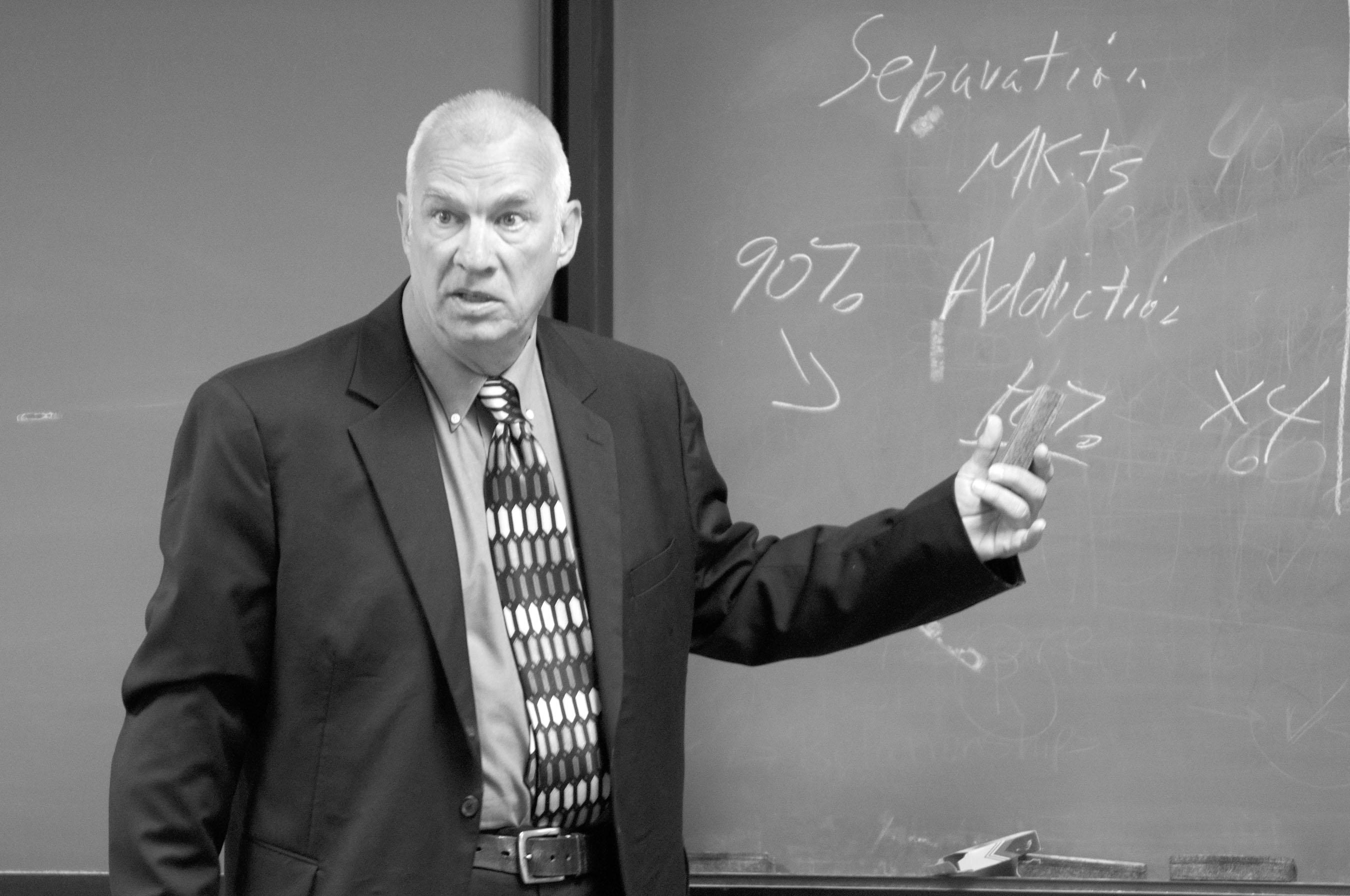“The prohibition approach has filled our jails, criminalized millions of our citizens, provided a financial windfall for international and local criminal groups and somehow we never tire of pretending it is working,” Howard Rahtz, from Law Enforcement Against Prohibition (LEAP), said this past Tuesday. Case Western Reserve University’s Young Americans for Liberty, Case Democrats, and Students for a Sensible Drug Policy hosted Rahtz and nearly sixty CWRU students and faculty attended the event, where Rahtz spoke about revising the United States’ current drug prohibition policy
Rahtz is a former police captain and SWAT team negotiator with an M.A. in Rehab Counseling from the University of Cincinnati, a degree from Northwestern University School of Police Command, and the Ohio Police Executive Leadership College. Rahtz also gained insight about the drugs and their effect on individuals’ lives as the supervisor of a city run methadone program. His background with drug treatment and drug interdiction has exposed him to the realities of current drug prohibition policy. With 18 years of law enforcement experience under his belt, including his years as Police Captain of the Cincinnati Police Department, Rahtz has one goal. “[To] choke off the revenue that supports drug cartels and drug trafficking,” he explained. Choking off such revenue would in turn be a financial benefit for the United States.
Rahtz suggests that legalizing marijuana, but not supporting public use of the drug, and taking a new approach to drug policy is a way that his goal can be achieved. The legal sale of marijuana would provide the U.S. with two new sources of revenue: the money saved by reducing criminal justice costs and the money earned by taxing the drug.
While combating drug transactions on American streets, Rahtz recognized that his police department might make a greater difference in the drug war by tackling drugs on the wholesale level. Rahtz and his department set records by taking on this new approach, preventing many drugs from reaching street dealers. But the efficacy of the approach is questionable.
“Is anyone on the streets complaining that they can’t find drugs?” Rahtz asked. Rahtz attributed the failure of the approach to huge quantities of drugs and the varied sources from which they come. He recalled instances where drug transactions turned into robbery, drive by shootings, and other harmful situations that often put innocent bystanders in jeopardy. Rahtz believes that a separation of the markets (eliminating the illegal buying/selling of marijuana on our streets) will not only cut off the funds that eventually make their way to destructive drug cartels and traffickers but will keep innocent civilians out of harm’s way.
According to Rahtz, legalizing the drug in a regulated manner could prevent a buyer from purchasing drugs other than marijuana from their dealer just because it’s available upon the time of the sale. Marijuana is the most commonly used drug in the United States, but is less destructive than the country’s four killers: heroin, powder cocaine, crack cocaine, and methamphetamine.
Sophomore Victoria Granda, a member of Young Americans for Liberty, shared her opinion during the event: “The problem is the crime we are creating by having an illegal market.”
Taking control of marijuana by legal means – prohibiting public use and controlling quality and strength – would eliminate a large percentage of the illegal and dangerous transactions occurring all across the U.S. and discontinue the allocation of funds to detrimental groups outside of our borders.
Rahtz recognizes that this change in policy will not be an easy one. Certainly, there are those who will argue that the legalization of marijuana has is cons. On the other hand, it is not only the legalization of marijuana and the creation of a legitimate business that could contribute to a beneficial change in society. Rahtz believes that decriminalizing drug possession and making it an administrative offense could help more addicts get the help that they need. Referring those in possession of marijuana or other drugs to an administrative body that could bring about the mandatory rehabilitation of those individuals would cut criminal justice costs and prevent more individuals from participating in the drug market that funds an estimated 50 percent of cartel income.
Rahtz emphasized above all else the need for a steady, systematic change that would support the proper rehabilitation of drug addicts, decrease the amount of money spent on criminal charges, and bring about the end of U.S. funding of harmful cartels.


